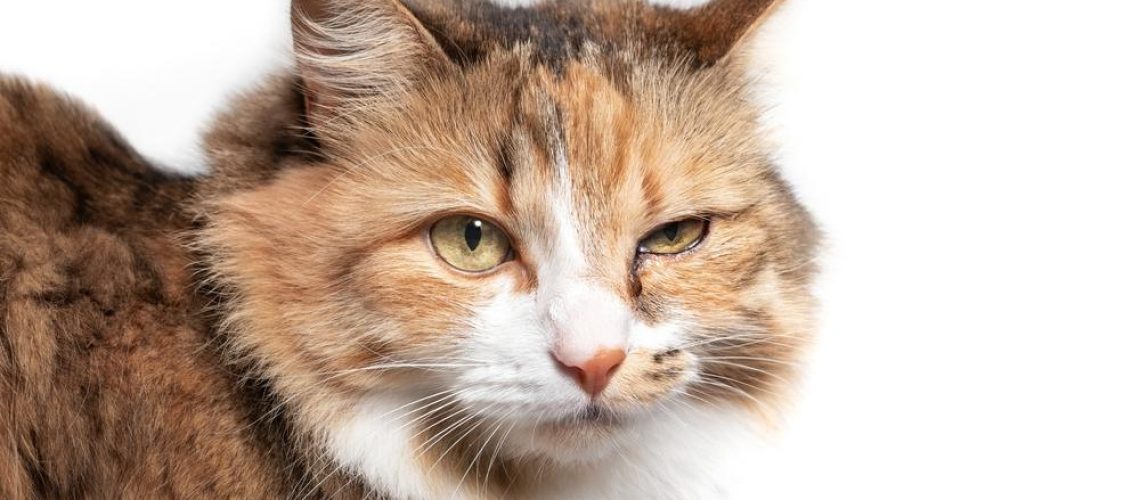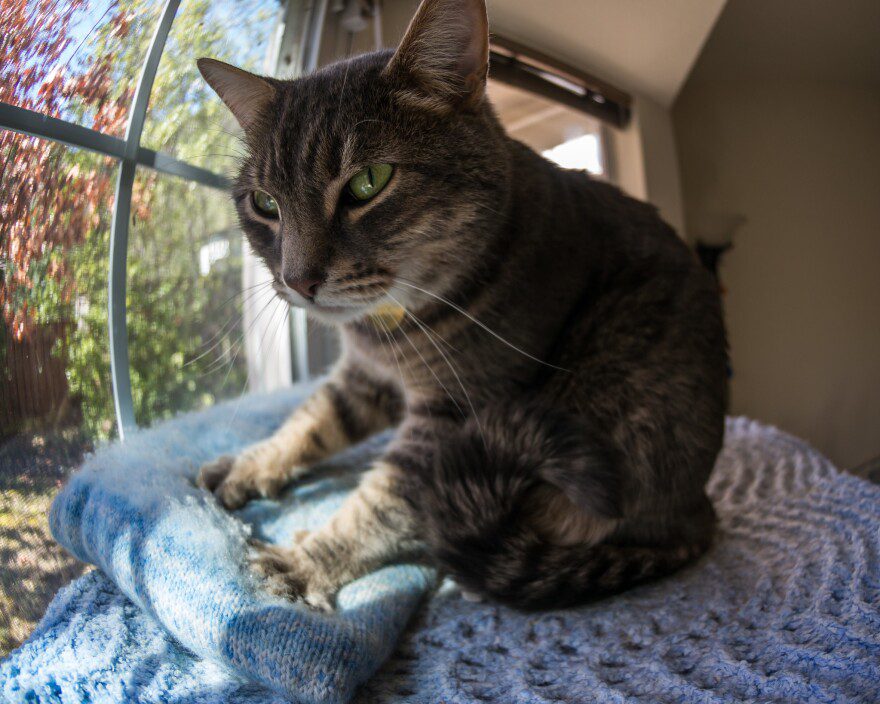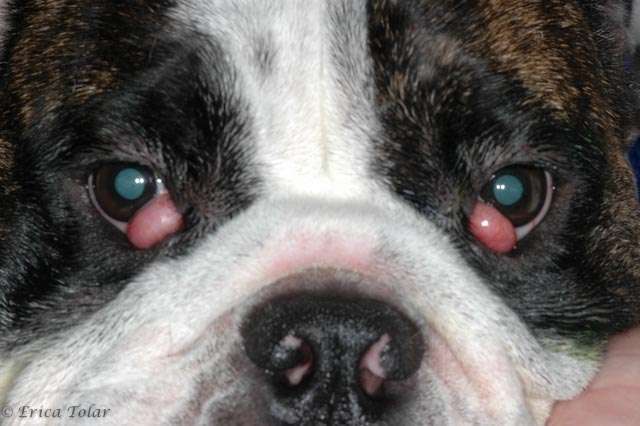Are you a cat lover who can't resist the adorable sight of your furry friend? Imagine coming home to find your beloved feline companion with swollen eyes. It's a distressing sight, and understandably so. But did you know that understanding the concern behind swollen eyes in cats can not only help you provide immediate relief to your pet but also potentially prevent more serious health issues down the line? In this article, we will explore the reasons behind this phenomenon, shedding light on why it is essential for every cat owner to be well-informed about their pet's eye health. So grab a cup of tea and get ready to embark on a journey that will deepen your bond with your whiskered companion while ensuring their well-being.
Key Takeaways:
- Swollen eyes in cats can be a sign of various underlying health issues.
- Allergies, infections, injuries, and certain systemic diseases can cause swollen eyes in cats.
- It is important to seek veterinary attention if your cat develops swollen eyes to determine the cause and appropriate treatment.
- Cats with swollen eyes may exhibit symptoms such as redness, discharge, squinting, or pawing at their eyes.
- To prevent swollen eyes in cats, it is crucial to keep their living environment clean and free of potential irritants.
Understanding Swollen Eyes in Cats
Swollen eyes in cats can be a sign of various underlying health issues. It is important for cat owners to understand the causes and symptoms of swollen eyes to provide appropriate care for their furry friends. Swelling around the eyes can occur due to infections, allergies, injuries, or even more serious conditions such as glaucoma or tumors.
When a cat's eyes are swollen, it may exhibit symptoms such as redness, discharge, squinting, pawing at the eyes, or changes in behavior. These symptoms can indicate discomfort and pain for your cat. It is crucial to pay attention to these signs and seek veterinary care promptly.
Causes of Swollen Eyes in Cats
The causes of swollen eyes in cats can vary depending on the individual cat's health and environment. Some common causes include:
- Allergies: Cats can develop allergies to certain foods, environmental factors like pollen or dust mites, or even substances they come into contact with.
- Infections: Bacterial or viral infections can affect a cat's eyes and lead to swelling.
- Injuries: Trauma or injuries to the eye area can cause swelling and other eye-related issues.
- Conjunctivitis: This is an inflammation of the conjunctiva (the thin membrane covering the front part of the eye) that can result in swollen eyes.
Symptoms of Swollen Eyes in Cats
It is essential for cat owners to recognize the symptoms associated with swollen eyes. These symptoms may include:
- Redness around the eye area
- Discharge from the eyes
- Squinting or excessive blinking
- Pawing at the eyes
- Changes in behavior or appetite
Recognizing Swollen Eyes in Your Cat
As a cat owner, it is crucial to be observant and recognize when your cat has swollen eyes. Take the time to closely examine your cat's eyes regularly for any signs of swelling or other abnormalities. Look for redness, discharge, or any changes in the appearance of the eyes.
If you notice any swelling around your cat's eyes or if they exhibit symptoms such as squinting or pawing at their eyes, it is important to take them to a veterinarian for a thorough examination. A vet will be able to determine the underlying cause of the swelling and provide appropriate treatment.
The Importance of Veterinary Care for Cats with Swollen Eyes
Veterinary care is crucial when dealing with swollen eyes in cats. A veterinarian will be able to diagnose the underlying cause of the swelling and provide appropriate treatment options. They may perform a physical examination, conduct tests, or recommend further evaluations such as eye cultures or blood work.
Early intervention and proper treatment can help prevent further complications and alleviate discomfort for your cat. Delaying veterinary care may lead to worsening symptoms and potential vision loss if left untreated.
Home Remedies to Reduce Swelling in a Cat's Eyes
While it is essential to seek veterinary care for cats with swollen eyes, there are some home remedies that can help reduce swelling temporarily:
- Cleanse: Gently clean around your cat's eyes using a warm damp cloth to remove any discharge or debris.
- Warm Compress: Apply a warm compress to your cat's eyes for a few minutes, several times a day. This can help reduce swelling and provide relief.
- Keep Environment Clean: Ensure your cat's living environment is clean and free from potential allergens or irritants that may contribute to eye swelling.
It is important to note that these home remedies are not a substitute for veterinary care. They can only provide temporary relief and should be used in conjunction with professional guidance from a veterinarian.
Preventing Swollen Eyes in Cats: Tips and Measures
Preventing swollen eyes in cats involves taking certain precautions and measures:
- Allergen Control: Identify and minimize exposure to potential allergens that may trigger allergies in your cat, such as certain foods or environmental factors.
- Gentle Handling: Handle your cat gently to avoid accidental injuries or trauma to the eye area.
- Regular Check-ups: Schedule regular veterinary check-ups to monitor your cat's overall health and catch any potential eye issues early on.
By following these preventive measures, you can help reduce the risk of swollen eyes in your beloved feline companion.
Home Remedies to Reduce Swelling in a Cat's Eyes
1. Cold Compress
If your cat's eyes are swollen, a simple and effective home remedy is to apply a cold compress. Take a clean cloth or towel and dampen it with cold water. Gently place the compress on your cat's closed eyes for about 5 minutes. The cold temperature helps reduce inflammation and swelling, providing relief to your furry friend.
2. Chamomile Tea Soak
Chamomile tea has soothing properties that can help alleviate swelling in your cat's eyes. Brew a cup of chamomile tea and let it cool down completely. Dip a cotton ball into the tea and gently dab it on your cat's closed eyes. The chamomile will help reduce redness and inflammation, promoting healing in the eye area.
Tips:
- Make sure the chamomile tea is unsweetened and caffeine-free.
- Always use a fresh cotton ball for each eye to avoid spreading any potential infection.
- If your cat shows signs of discomfort or if the swelling persists, consult a veterinarian for further evaluation.
Preventing Swollen Eyes in Cats: Tips and Measures
1. Regular Eye Cleaning
To prevent swollen eyes in cats, it is important to maintain good eye hygiene. Use a soft, damp cloth or pet-safe eye wipes to gently clean around your cat's eyes on a regular basis. This helps remove any dirt, debris, or irritants that could lead to inflammation or infections.
2. Allergen Control
Allergies can often cause swollen eyes in cats. Identify and minimize exposure to potential allergens such as pollen, dust mites, or certain foods. Keep your cat's living environment clean and free from potential triggers. Consider using air purifiers or keeping windows closed during high pollen seasons.
Tips:
- Consult with a veterinarian to determine if your cat has any specific allergies and discuss appropriate treatment options.
- Avoid using harsh chemicals or strong fragrances around your cat, as they can irritate the eyes.
- Ensure your cat's diet is balanced and suitable for their specific needs, as some food allergies can manifest as eye swelling.
In conclusion, swollen eyes in cats can be a sign of serious health issues such as infections or allergies. It is important to seek veterinary care promptly to ensure proper diagnosis and treatment for our furry friends.
Should I be worried if my cats eye is swollen?
If you notice any abnormalities in your cat's eyes, such as swelling, irritation, or discharge, it is important to consult your veterinarian right away as these could be symptoms of various conditions.
When should I worry about my cats eye?
If your cat is displaying signs of discomfort such as squinting, excessive blinking, or constantly pawing at their face, it is recommended that you bring them to your family veterinarian.
Will my cats swollen eye go away on its own?
Sometimes, cat eye infections will go away without treatment, but if not, a veterinarian will probably prescribe either eye drops or a cream.
Why is my indoor cat's eye swollen?
There are various reasons why cats may experience inflammation in their eyes, including non-infectious causes like allergic reactions, irritation from foreign objects, and exposure to chemicals, toxins, and specific plants. Conjunctivitis can also occur as a result of other illnesses such as eye cancer, tumors, and feline leukemia.
Can I give my cat Benadryl for a swollen eye?
Although Benadryl is not officially approved by the FDA for use in cats, veterinarians generally agree that it is safe. However, it is important to be cautious and follow the dosage instructions carefully to prevent overdose in cats.
What are the symptoms of FIP in cats eyes?
What are the eye-related symptoms of FIP? Ocular FIP is not very common and is only present in about 10% of FIP cases. The most frequent symptom is the sudden development of inflammation in one or both eyes, known as uveitis. Other eye symptoms include excessive tearing, narrowing of the eyes, redness, and the appearance of a cloudy eye.

















